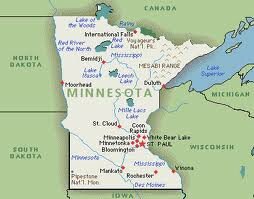How A Government Shutdown Could Be a Good Thing
July 6th, 2011
Back in April, the debate was whether or not the Federal government would shut down amidst the bitter budget dispute that continues to be a problem to this day. Eventually, the government passed an 11th hour deal that kept the government operating until a long-term budget was agreed upon. Leading up to that shutdown, many of us speculated what a government “shutdown” would mean; what services would be stopped, and what would continue operating. We didn’t have to go through the shutdown, even though it would be interesting to see how the nation would operate with Washington only offering the bare essentials. For citizens of Minnesota however, they get to experience a government shutdown first hand.
Beginning last week, the Minnesota State Legislature shut down after a budget showdown between Democrat governor Mark Dayton and the Republican-controlled state legislature failed to result in a budget agreement. Immediately afterwards, all non-essential state services closed down, and nearly 20,000 state employees were furloughed and told to collect unemployment benefits. The focal point centers around an estimated $1.8 billion tax hike on Minnesota’s millionaires, which was proposed by Democrats but rejected by Republicans, who want a smaller budget that focuses more on spending cuts to close a $5 billion budget gap.
Both sides have taken heat for allowing the government to close down by constituents who depend on government services to get by, but this shutdown may not be as bad as some make it out to be. First off, all federal agencies remain open, since they do not operate on state money, so you can still get your mail, collect entitlements, and write your congressman. As for state functions, one can still collect benefits the state owes them, police and firefighters will still be paid because they are essential workers, and the Minnesota Zoo will still be open because it can run on money collected through admission, concessions, and parking fees, despite it being state run. What this means is that the government isn’t really “shutting down”, it’s just closing all the non-essential services and putting non-essential workers on furlough.
From what I can see, a government “shutdown” sounds like a libertarian dream come true. The government is only offering essential services that private entrepreneurs or charities can not be expected to provide, like law enforcement, leaving people to take care of themselves. It also serves as a display of how many government functions are considered “non-essential” by the very government that is collecting taxes to operate them. If they aren’t essential, why is the government operating them instead of private entities? If the government stays closed long enough, it might actually result in people finding alternative ways to acquire the services they need that were previously thought to only be available in the public sphere. Eventually, private charities and entrepreneurs would offer the in-demand services, and compete with each other for customers, which would lead to an improved quality of product at an affordable price.
Maybe the fear we should have in such situations is not that a government “shutdown” will create chaos, but rather that when it “reopens”, it tries to become even larger.


